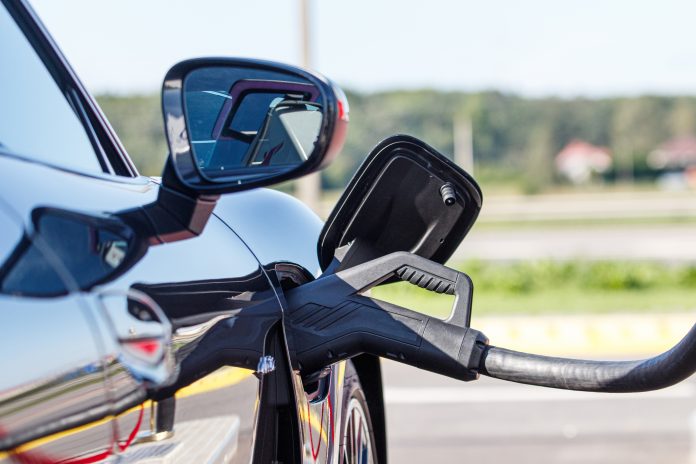Connected Kerb exists to power the future of sustainable mobility for everyone. Here Vicki Evans explores the significance of making EV charging more accessible to the general public whilst also illustrating the importance of electrifying the NHS fleet
Our starting point is bringing data and energy straight to the streets and enabling smart charging and connectivity to optimise capacity in a way that’s low impact, high value, and accessible to all.
A 2016 English Housing Survey revealed that 62% of UK residents lack driveways or the means to charge their own electric vehicle. We are working closely with local authorities to improve access to on-street residential charging. Our own research, “How to Meet The UK’s EV charging needs by 2030“ included a survey of over 2000 UK residents with over half expecting to be able to charge their vehicle right outside their home and only 10% willing to walk more than five minutes to do so. Providing an EV infrastructure network that puts user convenience first is paramount.
How can we ensure EV charging is accessible?
We’ve undertaken some significant projects to try and meet this need. We recently launched the West Sussex Chargepoint Network which will see thousands of charging points installed across the county for everyone, but particularly local residents without driveways. It is a genuine community project that brings together public landowners and residents, who will be able to charge at their local facilities such as their village hall or library.
It is also a real challenge of scale – delivering so many charging points is not easy but we always listen to the community which is why we are inviting residents to let us know where they would like a charging point installed. We also use our intuitive site selection tool which identifies suitable sites based on factors such as EV usage habits, local parking restrictions, existing street furniture and local grid capacity. Getting more charging points in the ground is vital, but so is getting them in the right place.
We also support residential and commercial developers, fleet managers and workplaces to revolutionise electric vehicle provision in this country and help the UK be ready for 2030. For example, we’ve worked with Cambridge Science Park to help their net zero journey by supplying innovative, long-lasting and future-proofed charging points. But it is the social value that our work brings of which we are most proud, which we believe will make the most valuable contribution to meeting net zero. And that is where our contribution to supporting the electrification of the NHS could be most telling.
Electrifying the NHS fleet would reduce fuel bills
With over a million employees, a large fleet of vehicles, and operating nearly half a million parking spaces where chargers could be installed, the NHS is an ideal setting for a large-scale EV charging point project. It has a well-established company car/salary sacrifice scheme which could evolve to encourage EV uptake, and guaranteed workplace charging would de-risk transitioning to an EV. Electrifying the NHS would also offer a serious subsidy to staff in reduced fuel bills.
Its employees are diverse and nationwide, helping spread EV ownership around the country. It would show the government’s commitment to the transition at home and abroad. And having a recognised infrastructure provider pioneering the shift would only boost the reputation of EVs. Such a project offers a chance to boost for UK innovation in EVs. A deployment of this scale would be the largest in the world and provide a blueprint for other projects. If it was awarded to UK businesses, it would help them scale to become dominant global players that could export around the globe.
Connected Kerb is ideally positioned to support eco-friendly charging points
Connected Kerb is ideally positioned to support such a project. Our charging points are made of recycled materials wherever possible. They also support future technologies such as 5G, IoT devices and air quality sensors and have been dubbed a ‘street USB’ that will power the smart cities of tomorrow. Additionally, we provide first-class community engagement services which cater for one of the most critical demands of the transition – education.
How can we make EV charging affordable?
Our Agile Streets project has really accelerated our goals to make EV charging affordable for all. The first public smart charging trial in the UK, the scheme allowed residents to access cheaper smart tariffs by choosing to charge when energy is cheapest. This might be when demand is low at night or when there is a surplus of renewables such as wind and solar. Users can make savings of up to 40% on the energy they pay for charging. We will be extending the success of this pilot across the rest of our network.
Accessibility is close to the heart of everyone at Connected Kerb. If we are really serious about using EV as a vehicle to reach net zero, we must cater for the 2.4 million blue badge holders in the UK who have a physical or cognitive impairment. Our charging points are designed with this in mind with no obstructive bollards, heavy cables of excessively tall units that are hard to reach when in a wheelchair. Having accessible charging points also means ensuring they can be used by people with strollers. But accessibility also means making sure charging points are available and easy to use in rural areas – not just urban centres like London which until recently, hosted 30% of the UK EV network.
How can we prioritise a net-zero future?
The projects mentioned so far are ambitious and bold but they are also necessary. Having that ambition is critical to hitting the 2030 and 2050 deadlines. Rolling out a handful of charging points in a few towns is not enough. There need to be tens of thousands – and that is just in on-street settings.
To achieve this, there needs to be a strong collaboration between the public and private sectors to unlock investment. Of course, installing charging points on such a large scale presents other challenges such as training.
We need more talent to join the EV industry and the number of EV-skilled mechanics and installers needs a big boost. That is why we at Connected Kerb are continually engaging with schools and colleges on climate action issues as well as hiring the best people in the industry within our own business.

This work is licensed under Creative Commons Attribution-NonCommercial-NoDerivatives 4.0 International.











